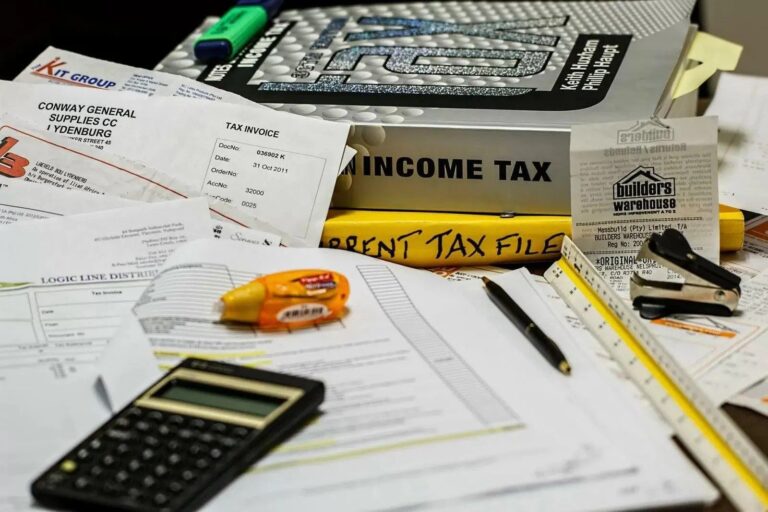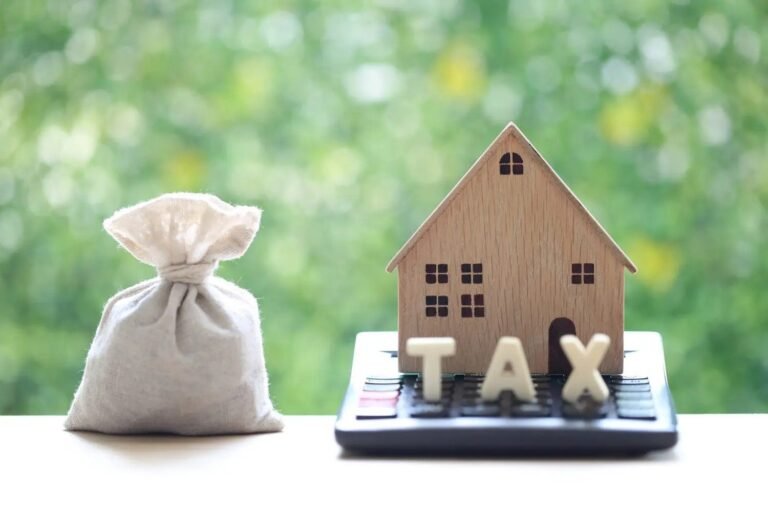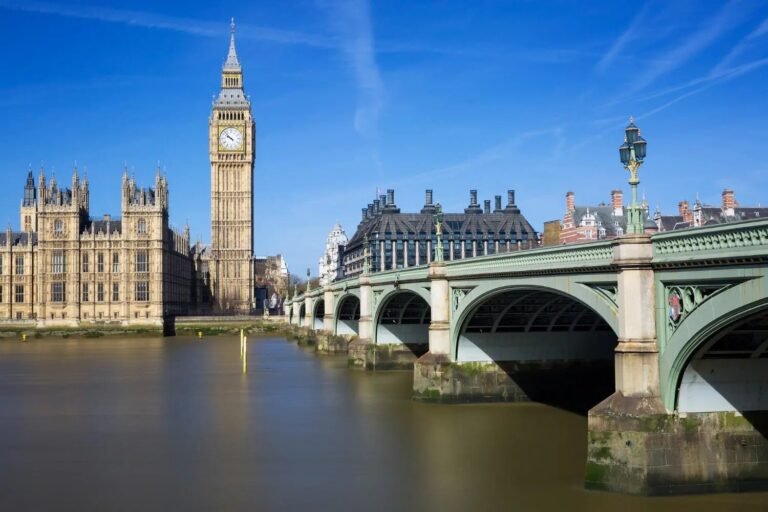The United Kingdom has a local tax called council tax that is assessed on domestic properties, which includes homes, flats, and other types of residential accommodation. This tax is used to pay for community services such as garbage pickup, street lighting, and law enforcement in the country.
Council tax is charged by the local council and is based on the value of the property, which is determined by the Valuation Office Agency. This agency assigns properties to one of eight valuation bands based on the property’s value at a specific point in time.
It’s also worth highlighting that the council tax rates change depending on the property’s value and location.
Do You Have to Pay Council Tax?

Unsure who pays the council tax on your domestic property? Contact your local council for clarification
Usually, the owner of the property is in charge of paying the council tax. However, if specified in the tenancy agreement, the tenant who rents the home can be liable for paying the amount.
In some circumstances, paying the tax may fall under the purview of both the owner and the tenant. For instance, the owner and the tenant may be liable for paying the local property tax if the property is a house in multiple occupancy (HMO).
If you’re unsure who pays the council tax for domestic property, you can get the answer by contacting your local council.
See Whether You Can Reduce Your Council Tax
The struggle to pay council tax is back-breaking sometimes. However, you can kick your feet back a little.
You might:
Get a Discount

Some people may be eligible for a discount or exemption on their Council Tax. Your council can advise you on whether you are eligible and how you can apply for discount/exemption.
For instance, someone with learning difficulties and mental health conditions could qualify for Council tax reduction.
Get Council Tax Reduction

Council Tax Reduction is a local scheme that can help reduce the amount of Council Tax that people on low incomes or with high outgoings have to pay. The Council Tax Reduction Schemes (Default Scheme) (England) Regulations 2012 came into force in December 2012
You can check with your local council if you are eligible for such schemes, as this is discretionary.
Challenge the Valuation

The Valuation Office Agency (VOA) is responsible for valuing properties for Council Tax purposes and will consider any evidence you have that your property has been wrongly valued. If you believe your property has been subject to an unfair evaluation, you can challenge the set value with the Agency.
Consequently, one has to be aware that revaluation can lead to even higher value of property, and hence higher tax.
Look into Council Tax Support

If you are on a low income, you may be eligible for Council tax support, which can help reduce the tax amount.Council tax support is available to people on certain benefits, such as Income Support or Jobseeker’s Allowance (JSA), or even those on a low income.
Council Tax Support or Reduction: Charting Your Path to Savings
As discussed above, Council Tax Support and Council Tax Reduction vary. Here is a quick overview of the difference between the two:

Council Tax Support
- Means-tested benefit
- Based on the income and assets of the person applying for the benefit
- Available to people on certain benefits or low incomes to help them pay their due amount
- National-Scheme

Council Tax Reduction
- A non-means tested reduction
- Based on the person’s tax bill and any other applicable discounts or exemptions
- Available to people in all parts of the UK as the local council administers this.
There is no cookie-cutter path to saving on Council Tax. It depends on various factors unique to each individual, making it difficult to find a single, universal solution.
Figuring Out Council Tax Bands and Property Value

In the UK, council tax is based on the value of a property, and properties are placed into one of eight “bands” based on their value.
These bands are designated as A through H, with band A being the lowest value and band H being the highest.
The values of the bands are determined by the local government and can vary from region to region.
The band that a property is placed into is based on the value of the property as it was on a certain date, which is typically set as 1 April 1991 for England and 1 April 2003 for Wales.
Additionally, the value of the council tax varies from band to band, with higher bands generally having higher tax rates.
The exact amount of tax that a property owner must pay is determined by multiplying the band rate by the council tax rate set by the local government.
You can also check your council tax band by visiting the HMRC link which uses address or postcode as a search parameter.
Council Tax Rebate
So far, we are clear about the fact that Council Tax is a local tax on properties, placed on a band based off value. Now, a Council tax rebate is a reduction in that very amount of tax due based on income or other factors. It is determined by local government authorities.
Local councils have been allocated £144 million in discretionary funding to assist households facing financial hardship as a result of rising energy expenses. The council tax rebate applies to properties in tax bands A through D that are used as the main residence on April 1, 2022.
Payments for the rebate had to be made until November 30, 2022.
Council Tax : Convenient and Efficient Payment
If you’ve got your money sorted and are wondering how to go through with the process of paying Council Tax, there are a few different ways to consider.


- Direct Debit: This is the most common method of paying Council Tax in the UK. You can set up a Direct Debit by contacting your local council or by using their online portal. With Direct Debit, your council will automatically take the payment from your bank account on a set date each month or quarter.
- Online Banking: Many local councils allow you to pay your Tax using online banking services. You will need to have the council’s bank account details in order to make the payment.
- By Phone: Subsequently, you can make a payment by phone using a debit or credit card. You will need to have your Council Tax account number and the amount you want to pay to hand when you call.
- By Post: You can also pay your Local tax by sending a cheque or postal order to your local council. Before you send the letter off, you should include your Council Tax account number on the back of the cheque or postal order.
- In Person: Some local councils have customer service centres where you can pay your Council Tax in person using cash, a debit or credit card.
It’s worth noting that while the above methods are the common ones, each local council may have their own method of payment.
We recommend checking the website of your local council or contact them directly to know the accepted method of payments. It’s worth it.
As stated before, if you’re struggling financially, don’t hesitate to reach out to your local council. They may be able to reduce your council tax or set up a manageable payment plan to help ease the burden.
Frequently Asked Questions
Q: Is Council Tax in the UK Paid Monthly?
In the UK, Council Tax is usually split into 10 monthly payments. Other alternative of 11 or 12 payments a year is also offered by some authorities.
Q: Does Everyone Pay Council Tax in the UK?
The short answer is, Yes. Most adults in the UK are responsible for paying Council Tax.
The following are examples of people who may be exempt from paying council tax:
- Full-time students: Full-time students are generally exempt from paying council tax. However, their household may still be required to pay if there are other non-student adults living in the property.
- People with a severe mental impairment: Individuals who are classified as having a severe mental impairment and are not counted as part of the household for council tax purposes. They may be eligible for an exemption or reduction.
- People living in care homes: Individuals who live in a care home, and are a resident of that care home, are also likely to be exempt.
- People living in a property that is not their main residence: Properties that are not occupied as a main residence, such as a holiday home, may be exempt from the Council rates.
- People on certain benefits: Some people who are on certain benefits such as Universal Credit, Pension Credit and Income support are eligible for a full or partial reduction of your local council tax.
Q: What happens if I don’t Pay my Council Tax Bill?
If you don’t pay your council tax bill, you may be charged a late payment penalty, and your local council may take steps to collect the unpaid amount, such as sending bailiffs to your property.
Q: What Happens When I move to a New Property?
When you move to a new property, you will be responsible for paying council tax on that property. You should contact your local council to let them know of the change of address and to arrange for council tax to be paid on the property.
Q: How Often is Council Tax Bill Issued?
Council tax bills are usually issued once a year, usually in March or April, with payments spread out over the course of the year, however, this can vary by local council.
Do you have more queries?
We, at UK Property Accountants have helped a lot of clients deal with HMRC investigations in an efficient way. If you have any queries on tax enquiries or need some advice from us.









